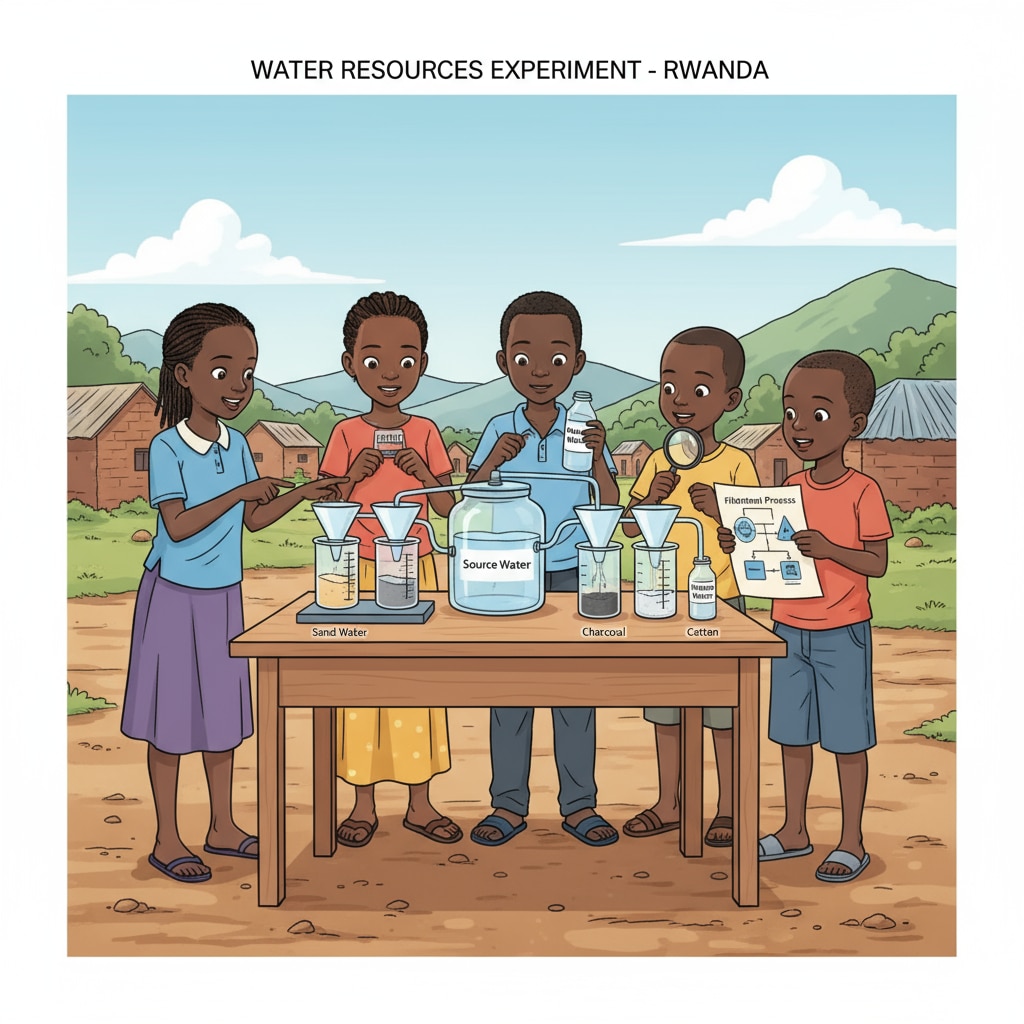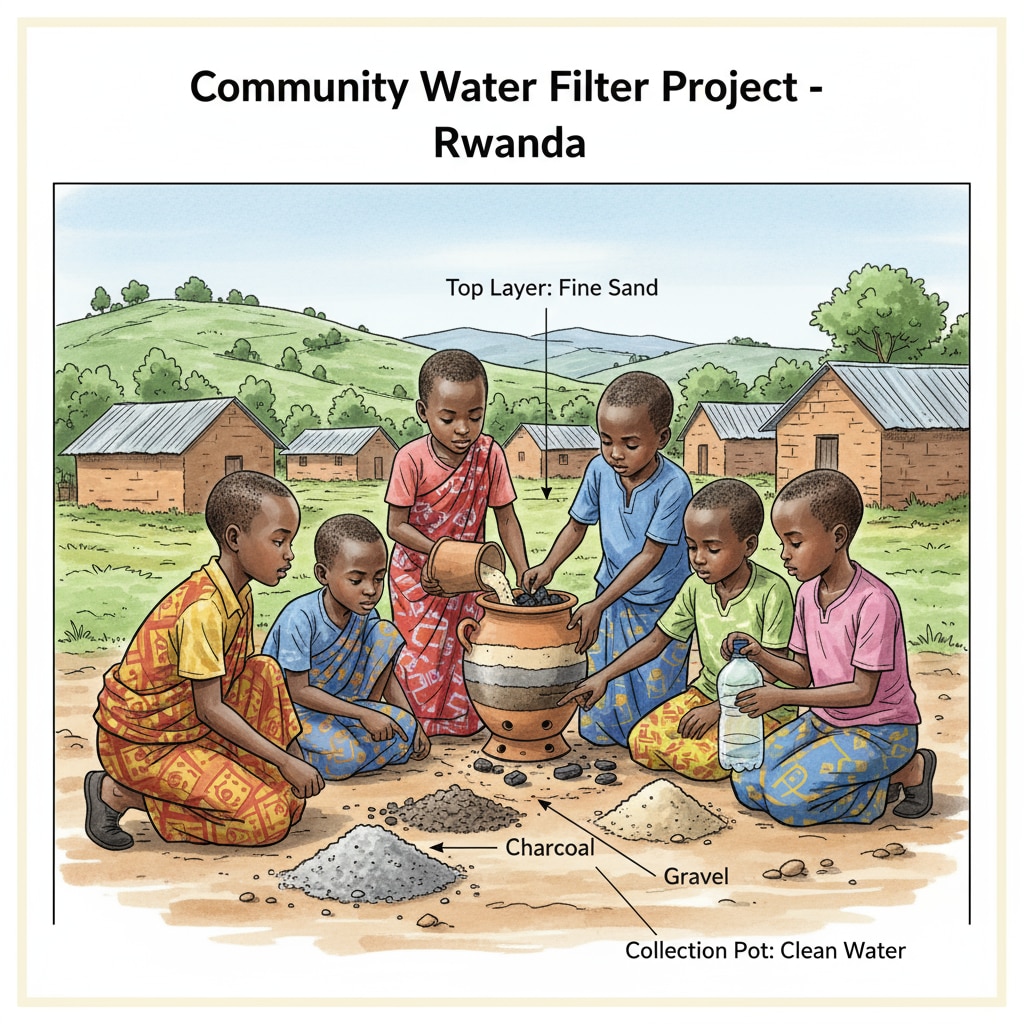STEM projects, water resources education, and Rwandan children’s education are intricately linked in an innovative initiative aimed at bringing quality education to rural areas. In Rwanda, a country with a predominantly rural population, access to advanced educational resources can be limited. However, a groundbreaking set of low-cost water resources STEM education activities has been designed to bridge this gap. These activities not only impart knowledge about water science but also cultivate essential skills among students.

The Significance of Water Resources Education in Rwanda
Water is a precious resource in Rwanda, especially in rural areas where access to clean water can be a challenge. Understanding water resources is not only crucial for daily survival but also for sustainable development. Water resources education in this context aims to empower Rwandan rural children with the knowledge to manage and protect this vital resource. For example, by learning about water purification techniques, students can contribute to improving the health and well-being of their communities. According to Wikipedia’s entry on water supply and sanitation in Rwanda, efforts in water education can have a far-reaching impact on the country’s development.
Designing Low-Cost STEM Activities
The beauty of these STEM activities lies in their low-cost nature. Using locally available materials, educators can create engaging experiments. For instance, simple filtration systems can be built using sand, gravel, and locally sourced containers. This not only makes the activities accessible but also encourages students to think creatively. As a result, students get the opportunity to learn scientific principles in a practical and cost-effective manner. These activities align with the principles of STEM education, which emphasize hands-on learning and problem-solving. Refer to Britannica’s definition of STEM education for a deeper understanding.

Moreover, these activities are designed to be completed within an afternoon, making them suitable for the busy schedules of rural schools. This short time frame also helps in maintaining students’ focus and enthusiasm. Through teamwork during these activities, students learn to collaborate effectively, which is an essential skill in any field. In addition, they develop innovative thinking as they find solutions to problems encountered during the experiments.
In conclusion, the low-cost water resources STEM education activities for Rwandan rural children are a beacon of hope. They bring the benefits of STEM projects, water resources education, and quality Rwandan children’s education within reach. By equipping students with knowledge and skills, these activities lay the foundation for a more sustainable and educated future in rural Rwanda.
Readability guidance: Short paragraphs and lists are used to summarize key points. Each H2 section provides a list of related ideas. The proportion of passive voice and long sentences is controlled, and transition words are added throughout the text for better flow.


